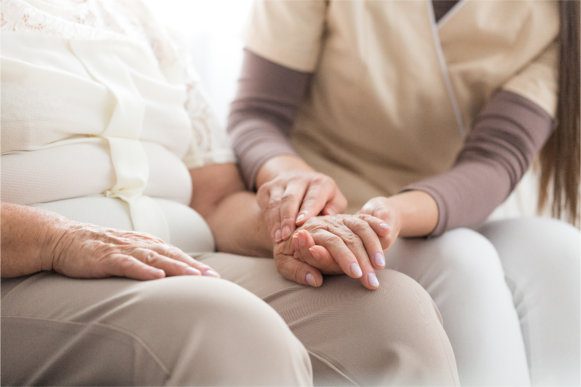Every three seconds, someone in the world develops dementia. By the year 2030, it is expected that seventy five million people will suffer from dementia worldwide. Chances are that you yourself know someone who has memory troubles or suffers from a disease like Alzheimer’s. With the issue being so common, it’s important to know what to do in terms of safety for your loved one who has dementia or a related condition.
First, let’s take a look at how dementia affects safety.
How dementia affects safety
The symptoms associated with dementia cay vary widely from one person to the next, but some common signs include losing the sense of time and place, forgetting how to perform everyday activities (such as cooking and hygiene tasks like bathing and toileting), weakened senses (such as hearing, sensitivity to temperature, vision, and depth perception), and, of course, forgetfulness, including forgetting where they’ve put things or where they live.
With Alzheimer’s disease in particular, these symptoms tend to increase in both frequency and severity. For these reasons, it’s of the utmost importance that a home-safety assessment be completed and safety features put into place.
In-home safety
You can start by thinking about your loved one’s health, behaviors, and abilities. For instance, consider the following:
- Can he or she safely use stairs? Handrails, non-slip mats, and brightly colored tape can help in some cases.
- Can he or she safely use a stove or other appliances? If not, consider in-home senior care or an independent caregiver to help with meals and light housekeeping.
- Are there throw rugs or other obstacles on the floors that could cause falls?
- Are there slippery areas on the floor that need to be covered?
- Can he or she safely bath independently? If no, consider grab bars, covering the faucet to prevent injury if a fall occurs, install a non-slip mat, and set the water temperature in the home so that your loved one won’t suffer a burn from scalding hot water.
- Are hazardous products such as medications or cleaning solutions a concern? If so, lock them up or hire a nurse to oversee medication management for your loved one. It’s also a good idea to make sure there are not potted plants that could make your loved one sick if eaten. To check, you can call local nurseries or contact poison control (1-800-222-1222) for a list of poisonous plants.
- Is the home cluttered? Anything on the floor could increase the risk of a fall injury if your loved one is unsteady on his or her feet. Clear out clutter and make sure there is plenty of room for him or her to move through the home.
- Is your loved one prepared for an emergency? Display emergency contact information in prominent places such as near each phone and on the refrigerator.
- Are there adequate smoke alarms and carbon monoxide detectors? It’s also a good idea to check the batteries and function often.
- Are outlets and cords a concern? Place lamps as close as possible to electrical outlets and cover all unused electrical outlets with child proof plugs. In addition, make sure that all cords are tucked out of the way to prevent tripping or entanglement.
- Make sure all rooms have sufficient light. Dark rooms can present a fall hazard as well, since your loved one won’t be able to see what is in their path.
Preventing leaving the home and wandering
Seniors with dementia, particularly those who suffer from Alzheimer’s are prone to wandering and becoming lost. For this reason, it’s important to consider ways to prevent leaving the home, especially in a vehicle.
Here are some tips for seniors who live alone.
- Consider hiring a home healthcare agency or caregiver to assist with keeping your loved one safe.
- Install hidden locks on all exterior doors. Deadbolts should be placed out of sight (either high or low) on all exterior doors to prevent your loved one from wandering out of the house. Be sure to keep an extra set of keys hidden near the door for easy access by loved ones and caregivers. It’s also a good idea to remove all locks in both bathrooms and bedrooms so your loved one can’t become locked inside.
- Ensure that all vehicles are locked and the keys are not accessible. If your loved one has advanced dementia or Alzheimer’s, consider covering or removing vehicles and bikes that aren’t used often. In addition, it’s a good idea to lock doors to garages or other areas where vehicles are stored.
- If there is a swimming pool on the property, restrict access by surrounding it with a fence and installing a gate with a lock. Also be sure to cover the pool or hot tub when it’s not being used.
Safety tips are important, but it’s also crucial to remember to create a home that doesn’t feel too restrictive for your loved one. With good communication, help, including quality home healthcare if needed, and resources, and a plan for implementing safety features, you and your loved one can rest assured of his or her safety.
